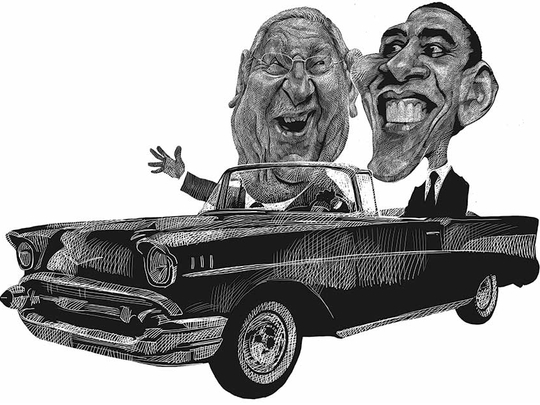
Raul Castro must be sitting back in his Havana hacienda right now with a huge smile on his face. And right now, his socialist republic of Cuba is as close as you can get to being fully back in America’s good books than at any time since Raul and his bigger brother, Fidel Castro, came down from the Sierra Maestra mountains in 1959 with a rag-tag cadre of Communist guerrillas and proceeded to kick the corrupt dictatorship of Fulgencio Batista out of the president palace, shut down the Mafia’s casinos along the Havana seafront, and set up shop.
Let us face it, the 84-year-old has done more to move Cuba closer to Washington than any of the 11 US presidents who have occupied the White House since the Castro brothers came to power. And most of those presidents had actively tried to have the Central Intelligence Agency bump off Fidel with everything from exploding cigars, bombs, bullets and poisons. What finally did Fidel in was a dodgy stomach and he passed on the reins of power to Raul, five years his junior, back in 2006.
That was supposed to be a temporary measure until Fidel recuperated. But the senior Castro had had enough — his infamously long speeches to the party faithful in Place de la Revolucion had taken their toll. Either that, or Fidel simply felt that the slogans of Socialismo o muete — socialism or death — were ringing hollow. Raul, long considered to be the hard man when it came to organising the island’s military defences against the American imperialist forces 100 kilometres away across the Straits of Florida — has proved himself to be a reformer who has brought about fundamental changes to Cuban society.
He has brought about private property reforms, opened up telecommunications, allowed limited ownership of businesses, and spread the wealth brought by hoards of sun-seeking Canadians with hard currency in their pockets.
Coconut Communist paradise
But Cuba still remains an economic basket case. First the Soviets ploughed millions into the island economy, buying up its annual sugar cane crops for dubious consumer goods manufactured by the proletarian workers of the disparate — and desperate — Soviet satellite republics. For many Canadians, having Spanish-speaking black Cuban bartenders with names such as ‘Yuri’ or ‘Vladimir’ pour drinks at a beach resort was a stark reminder that the Soviets were calling the shots. Enter Mikhail Gorbachev and the realisation that the Union of Soviet Socialist Republic could not make its own ends meet, never mind those of coconut Communist paradise 11,000 kilometres away. Something had to go, and it was the millions in subsidies.
That collapse of the early 1980s almost did the Castro boys in, but Raul, through his control of the military, kept a close eye on any dissent that asserted Cuba Libre was more than a rum-based cocktail. It was Raul, after all, who had introduced Fidel to Che Guevara, the Chilean internationalist guerrilla who did more to shape Latin American thinking than a generation of tin-pot dictators propped up by dollars and dirty tricks from Washington. And it is also Raul who realised the potential that Havana would have at the height of the Cold War if only the USSR would station a few nuclear-tipped missiles across the island and pointed everywhere from Maine to San Francisco.
Bit of a misstep that — the Soviets were not willing to defy a US naval blockade imposed by president John F. Kennedy and promptly turn the cargo vessels back to Murmansk.
With Fidel falling ill and Raul taking over temporarily, his assumed power was never in any doubt. Fidel had made it perfectly clear in January 1959 — three weeks after taking power — that Raul would be his successor, telling his supporters: “Behind me are others more radical than I.”
More radical? Certainly more enthusiastic about spreading Cuba’s influence globally during the 1970s. Whether it is Angola rebels looking for help to be rid of Portuguese colonial masters or a bit of a civil war between Ethiopians and Eritreans, there were Cuban revolution brigades there with AK-47s in hand to play their party. If the Soviets could not be seen to be interfering, the Cubans were quite happy to oblige.
Ironic then, that this master of spreading military mischief has managed to convince President Barack Obama that Havana does not have any reason to be on the US’s list of nations that are state sponsors of terror. In from the cold, and in from the Cold War.
Of course, the thaw in relations has nothing to do with the fact that there is a US presidential election in the offing? Close. Close, but no cigar.









